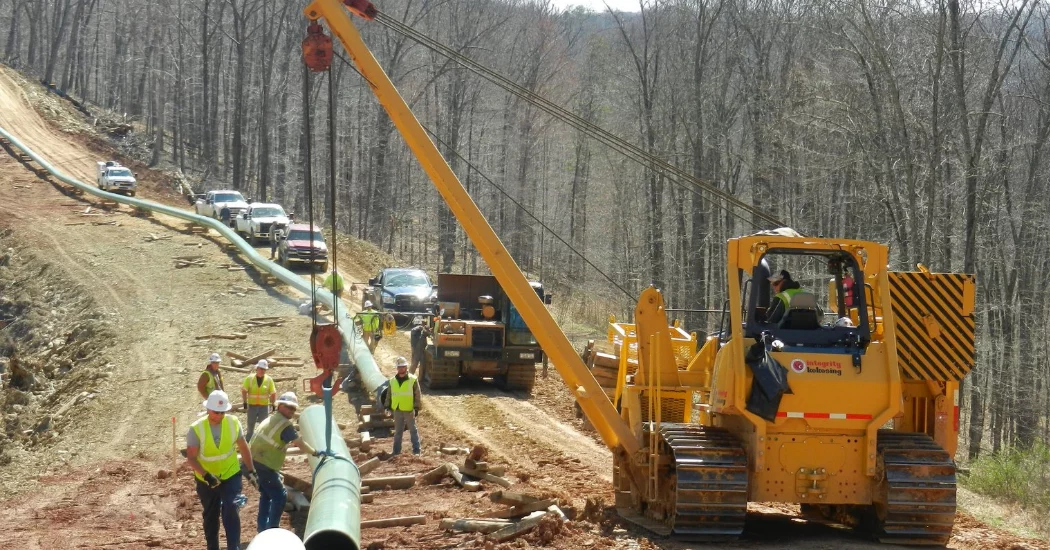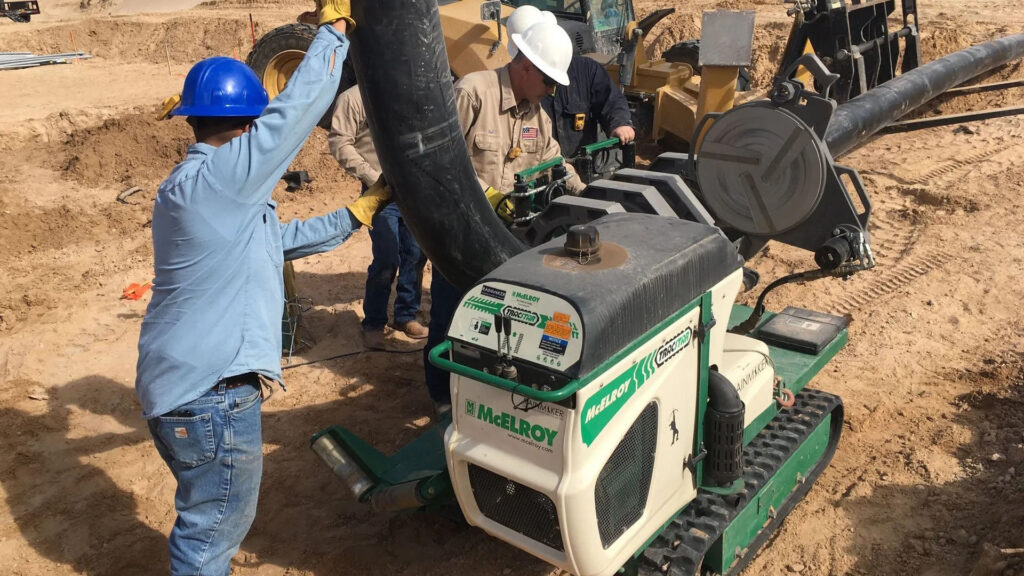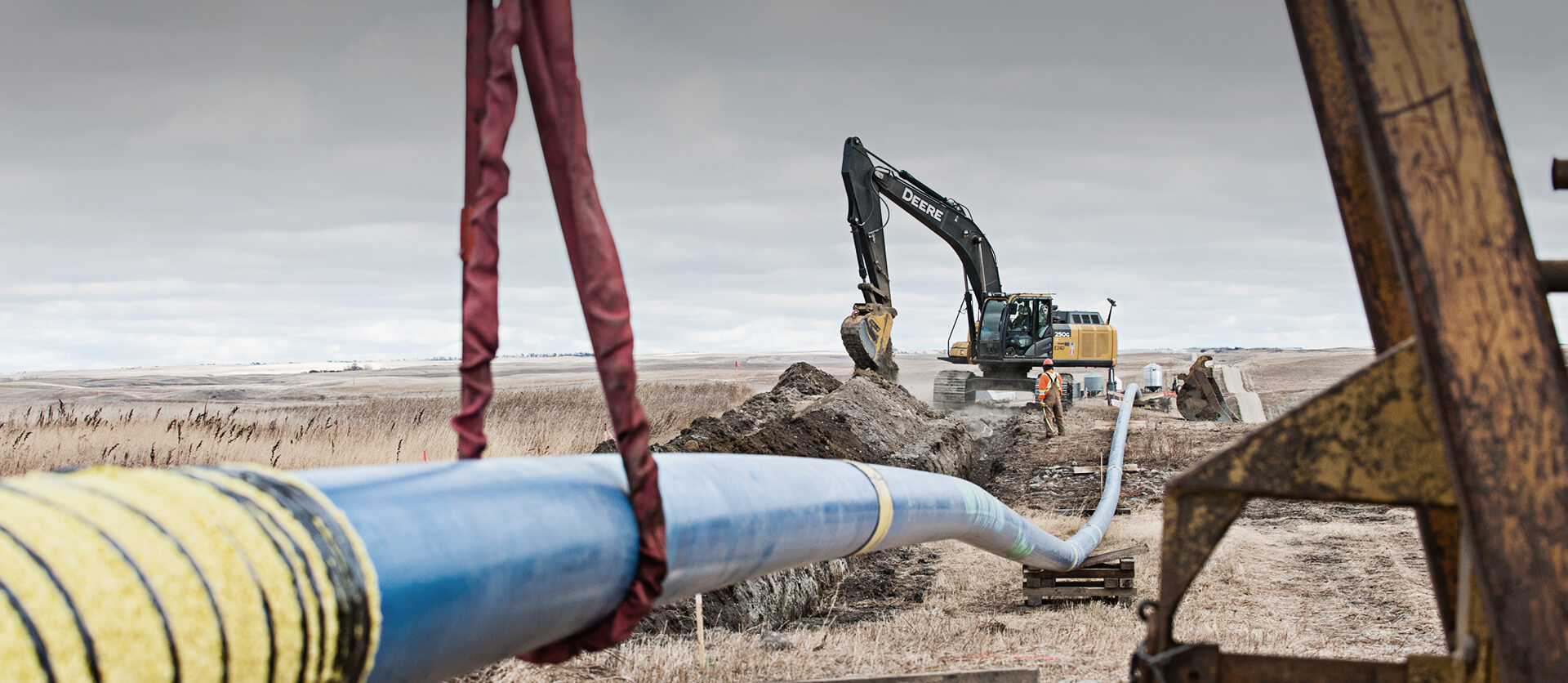Pipeline Construction Services Checklist: From Planning to Completion
The Crucial Guide to Recognizing Pipeline Construction Services and Their Importance
Pipeline Construction services are essential to the transportation of crucial sources such as water, gas, and oil. These solutions entail meticulous preparation and implementation, sticking to rigorous safety and security and environmental requirements. As the market adapts to modern-day challenges, recognizing its elements and implications ends up being progressively essential. What aspects add to the growing importance of these services in today's economy? The adhering to areas will certainly discover these crucial aspects.
Review of Pipeline Construction Providers
Pipeline Construction solutions include a variety of activities important for the installation and maintenance of pipes made use of to move different materials, including oil, water, and gas. These services are important for guaranteeing the effective and secure motion of resources from one location to an additional. The procedure commonly starts with extensive preparation and layout, which thinks about governing needs, ecological factors to consider, and logistical challenges.
When planning is total, excavation and grading of the land are conducted to prepare the website for Pipeline setup. This is adhered to by the real laying of the pipes, which entails welding or signing up with sections with each other to develop a continuous circulation course. After installation, rigorous screening is carried out to ensure stability and security. Upkeep services are likewise supplied to deal with any kind of concerns that might occur with time. On the whole, Pipeline Construction services play a pivotal duty in supporting facilities for power and water circulation.
Secret Components of Pipeline Construction
An effective Pipeline Construction project relies on numerous crucial parts that ensure the safe and reliable installation of the Pipeline system. First, complete site analyses are essential, as they recognize the environmental and geographical elements that may influence Construction. Next off, the choice of proper products, such as fittings and pipes, is important for safeguarding toughness and compatibility with the moved materials.
Progressed Construction methods, consisting of trenchless modern technology and directional drilling, boost efficiency and decrease environmental effect. Efficient project management is another important part, working with labor, equipment, and timelines to fulfill job objectives.
Additionally, interaction amongst stakeholders, consisting of engineers, professionals, and local authorities, assurances alignment on task requirements and needs. Finally, complete high quality control procedures throughout the Construction procedure make certain conformity with sector standards and take full advantage of the Pipeline's operational lifespan. Collectively, these parts form the foundation of an effective Pipeline Construction task.
Security Criteria and Regulations in Pipeline Construction

Improving Governing bodies, such as the Occupational Safety and Wellness Administration (OSHA) and the Pipeline and Hazardous Products Safety And Security Administration (PHMSA), stated specific needs that control Construction techniques. These consist of protocols for equipment use, employee training, and emergency feedback treatments. By applying these standards, Construction business not just secure their staff members yet additionally safe public count on. Eventually, extensive safety measures add to the long-term success of Pipeline jobs, ensuring they satisfy both ecological and operational expectations.
Ecological Considerations in Pipeline Projects

Environmental factors to consider are essential to the planning and implementation of Pipeline projects. These projects must assess prospective effects on communities, water sources, and regional wildlife. Carrying out complete environmental effect analyses (EIAs) is essential, enabling stakeholders to identify and minimize threats prior to Construction begins.
Shielding delicate locations, such as habitats and marshes, frequently requires applying certain layout attributes or alternative transmitting to decrease interruption. In addition, Pipeline drivers are entrusted with establishing techniques for avoiding leaks and spills, which can have damaging impacts on the setting.
Engagement with regional communities is crucial, as public concerns can result in project alterations that improve environmental protection. Conformity with regulations set by ecological companies ensures that tasks meet sustainability standards, promoting a balance between facilities demands and eco-friendly preservation. Ultimately, dealing with ecological considerations not just safeguards nature yet additionally promotes area count on and project feasibility.
The Duty of Modern Technology in Pipeline Construction
Modern technology plays an essential function in modern-day Pipeline Construction, enhancing performance and accuracy. Advanced surveying techniques permit exact planning and implementation, reducing ecological impact and project delays. In addition, the integration of automation and robotics enhances operations, reducing labor prices and boosting safety and security on Construction websites.
Advanced Surveying Techniques
Advanced surveying techniques play a crucial role in the effective implementation of Pipeline Construction projects. These techniques take advantage of innovative innovation to guarantee exact mapping and analysis of the terrain where pipelines will be set up. Strategies such as Geographic Information Systems (GIS), LiDAR (Light Detection and Ranging), and 3D modeling enable engineers to visualize and assess the landscape, determining ecological problems and potential challenges. By making use of these advanced tools, groups can boost precision in placing and alignment, greatly decreasing the threat of mistakes throughout Construction. Furthermore, real-time data collection permits immediate changes and educated decision-making throughout the project lifecycle. Ultimately, these surveying technologies add to improved effectiveness, security, and sustainability in Pipeline Construction initiatives.
Automation and Robotics

Economic Influence of Pipeline Infrastructure
Pipeline infrastructure plays a vital function in assisting in and shaping regional economies trade. By offering a reputable ways of carrying oil, gas, and various other products, pipes reduce transportation expenses and boost supply chain efficiency. This framework draws in financial investment, boosts job development, and fosters economic development in bordering locations.
Additionally, the Construction and upkeep of pipes add substantially to local economies, developing many job opportunity in various sectors, from design to labor. The influx of jobs frequently results in enhanced investing in neighborhood companies, better boosting economic task.
Additionally, pipes improve energy safety and security by making sure a steady supply of sources, which is critical for domestic needs and industrial operations. As regions become adjoined with Pipeline networks, they obtain accessibility to wider markets, enhancing competitiveness and financial strength. Subsequently, the economic impact of Pipeline facilities is multifaceted, influencing both immediate regional economic climates and wider regional development.
Future Trends in Pipeline Construction Solutions
The future of Pipeline Construction services is advancing in action to technical advancements, regulative modifications, and expanding environmental considerations. Technologies such as drones and robotics are streamlining examination and upkeep procedures, improving safety and security and efficiency. Automation is positioned to reduce labor costs and boost accuracy in Construction procedures. Furthermore, the increasing focus on sustainability is prompting business to take on green materials and practices, straightening with global initiatives to lower carbon footprints.
Regulative structures are likewise adjusting to deal with ecological impacts, promoting better transparency and liability in Pipeline projects. Additionally, the integration of wise technologies, including real-time tracking systems, is anticipated to enhance the reliability and performance of Pipeline networks. As energy demands change towards sustainable sources, Pipeline Construction services will likely see an increase in tasks associated to biofuels and hydrogen transportation. In general, these fads show a transformative duration for the Pipeline Construction sector, focused on technology and sustainability.
Often Asked Questions
What Sorts of Pipelines Are Typically Created?
Various kinds of pipelines are generally built, including oil, water, sewage, and gas pipes - Pipeline Construction Services. Each serves unique objectives, assisting in the transportation of essential sources across areas while sticking to safety and security and ecological guidelines
The length of time Does a Typical Pipeline Task Take?
The duration of a regular Pipeline job differs significantly, often varying from several months to a couple of years. Aspects influencing this timeline include project complexity, governing approvals, and environmental considerations that must be addressed.
Who Manages Pipeline Construction Companies?
Pipeline Construction companies are regulated by numerous federal, state, and local firms, including the Pipeline and Hazardous Products Security Administration (PHMSA) and state public energy commissions, ensuring compliance with safety and ecological requirements throughout the Construction process.
What Are Common Products Utilized in Pipeline Construction?
Usual materials used in Pipeline Construction consist of pvc, polyethylene, and steel. Each material uses distinctive advantages such as resistance, flexibility, and durability to rust, making them ideal for different applications in delivering gases and fluids.

How Are Pipeline Construction Expenses Estimated?
Pipeline Construction costs are approximated by evaluating variables such as material expenditures, labor prices, project intricacy, ecological considerations, and governing demands (Pipeline Construction Services). Exact expense evaluation guarantees reliable budgeting and task preparation throughout the Construction process
Pipeline Construction services include a range of tasks vital for the setup and upkeep of pipes utilized to deliver different substances, including oil, water, and gas. A successful Pipeline Construction job counts on a number of key parts that ensure the safe and efficient installment of the Pipeline system. Advanced evaluating strategies play a vital role in the effective execution of my link Pipeline Construction projects. Various kinds of pipelines are generally constructed, including oil, sewage, gas, and water pipelines. Pipeline Construction costs are estimated by analyzing factors recommended you read such as product expenses, labor rates, project complexity, ecological factors to consider, and regulatory demands.